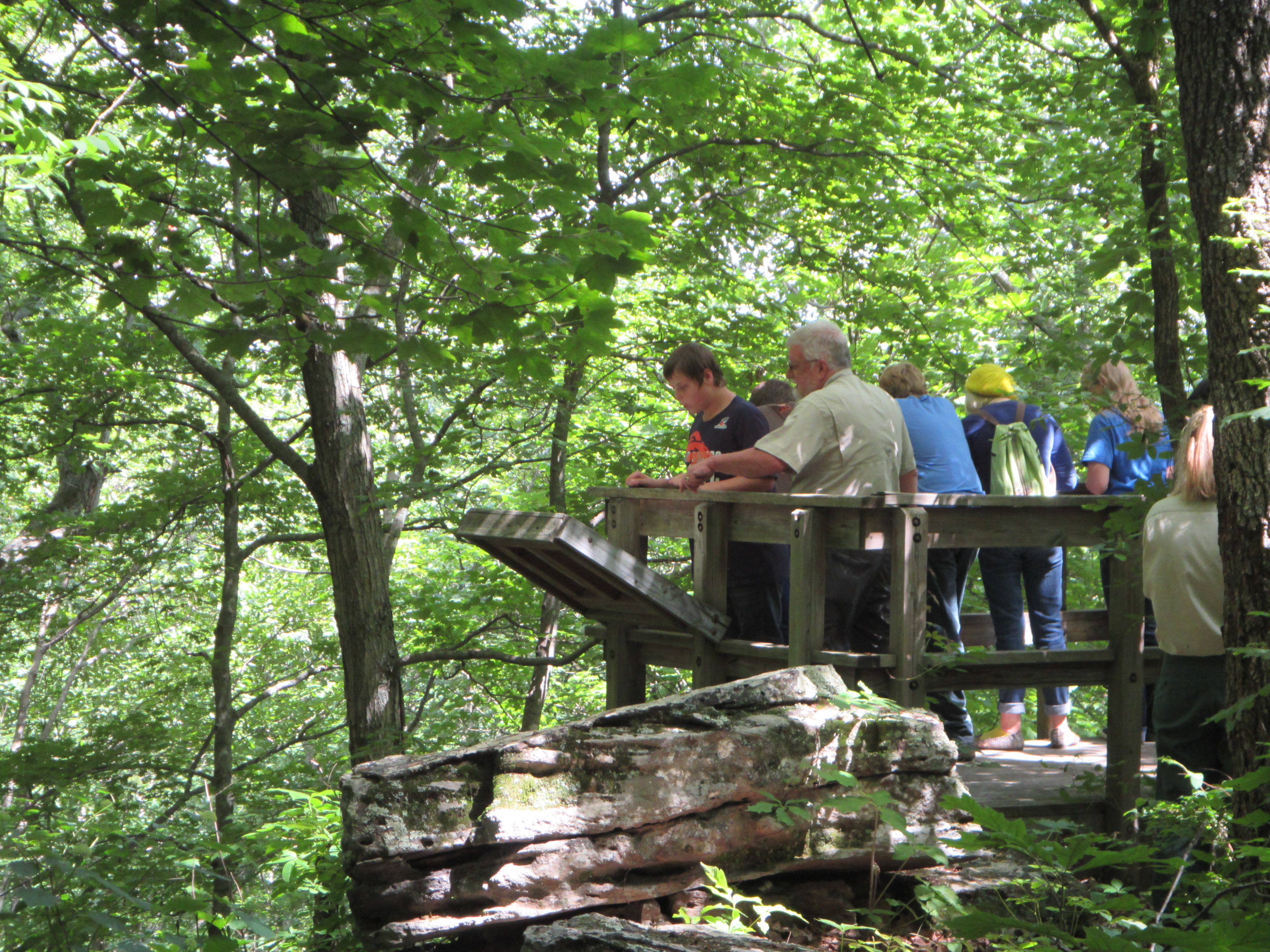
Mark Wagner, director of the Center for Archaeological Investigations at Southern Illinois University Carbondale, with a young member of the Shawnee Tribe during a visit earlier this summer to the Millstone Bluff archaeological site in the Shawnee National Forest. The visit is an outreach from the U.S. Forest Service to the three federally recognized Shawnee tribes, and is meant to help connect middle school through high school students with their cultural heritage. (Photo provided)
July 06, 2015
Native American students to tour forest sites
CARBONDALE, Ill. – Southern Illinois University Carbondale and the Shawnee National Forest are teaming up to help connect some middle school and high school students to their heritage this week.
Members of the Absentee Shawnee Tribe of Indians of Oklahoma, a federally recognized tribe, are visiting archaeological sites in and near the Shawnee National Forest as part of a cooperative effort from the Shawnee National Forest and the Shawnee people to keep young tribe members connected to their cultural heritage. Mark Wagner, director of the SIU Center for Archaeological Investigation and an expert in rock art, will lead the group on a tour of the Millstone Bluff site, which includes rock art and other artifacts and evidence of the Native American people who lived there.
Media Advisory
Members of the media are welcome to accompany the group on a tour or to arrange a time for interviews. Contact U. S. Forest Service archaeologists Mary McCorvie, 618/713-7473 or Heather Carey, 618/697-2544, to make arrangements.
The group plans to visit sites in the Panther Den Wilderness Area, canoe on the Cache River and visit sites along it, and visit the Millstone Bluff site. The group is staying at SIU’s Touch of Nature Environmental Center during the visit.
A previous group comprised of members of the Eastern Shawnee Tribe of Oklahoma and the Shawnee Tribe visited earlier this summer.
“SIU and the Forest Service have a strong partnership,” McCorvie said. “It’s important that we have a relationship with the Shawnee tribes, and it’s important to them to make connections for the young people with their ancestral home.”
